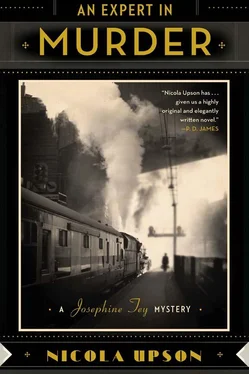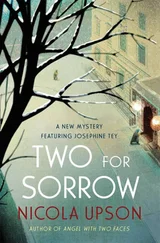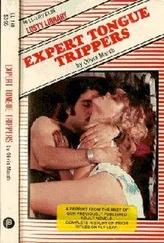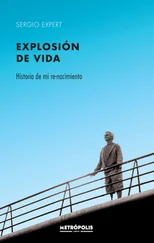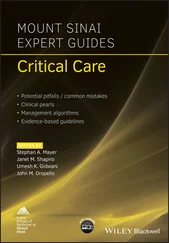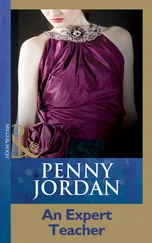Nicola Upson - An Expert in Murder
Здесь есть возможность читать онлайн «Nicola Upson - An Expert in Murder» весь текст электронной книги совершенно бесплатно (целиком полную версию без сокращений). В некоторых случаях можно слушать аудио, скачать через торрент в формате fb2 и присутствует краткое содержание. Жанр: Старинная литература, на английском языке. Описание произведения, (предисловие) а так же отзывы посетителей доступны на портале библиотеки ЛибКат.
- Название:An Expert in Murder
- Автор:
- Жанр:
- Год:неизвестен
- ISBN:нет данных
- Рейтинг книги:3 / 5. Голосов: 1
-
Избранное:Добавить в избранное
- Отзывы:
-
Ваша оценка:
- 60
- 1
- 2
- 3
- 4
- 5
An Expert in Murder: краткое содержание, описание и аннотация
Предлагаем к чтению аннотацию, описание, краткое содержание или предисловие (зависит от того, что написал сам автор книги «An Expert in Murder»). Если вы не нашли необходимую информацию о книге — напишите в комментариях, мы постараемся отыскать её.
An Expert in Murder — читать онлайн бесплатно полную книгу (весь текст) целиком
Ниже представлен текст книги, разбитый по страницам. Система сохранения места последней прочитанной страницы, позволяет с удобством читать онлайн бесплатно книгу «An Expert in Murder», без необходимости каждый раз заново искать на чём Вы остановились. Поставьте закладку, и сможете в любой момент перейти на страницу, на которой закончили чтение.
Интервал:
Закладка:
seemed her fate to go through life unnoticed or easily forgotten, but he would recognise her soon enough. She sealed the envelope and picked up her coat, slamming the door on her way out.
Rafe Swinburne slid quickly and silently from tangled sheets with the ease born of long practice, and saw with relief that the slender young redhead whom he left behind – Sybille, he thought she had called herself, or Sylvia – remained fast asleep. In bed and out, she had proved to be more entertaining than most of the young women who hung around Wyndham’s stage door at the end of every performance, waiting for young actors like him to emerge, but he had no wish to continue the relationship into a second day.
There was, he had discovered, a seemingly inexhaustible supply of sweet young things who expected him to live up to his stage role as caddish young lover, and he was more than happy to oblige.
Acting had many more advantages than a salary of thirty pounds a week and he had always been the ambitious type, as greedy for adoration off stage as on. Last night, he had been adored until well into the early hours.
He dressed quietly in the bathroom, examining his mirror-image over a shelf crammed with creams and powders. Mercifully, his reflection confirmed that he needed nothing more than a splash of cold water to make himself presentable. He was, as he well knew, a strikingly handsome young man, tall and dark with lean features that were softened to just the right degree by hair worn slightly longer than was considered fashionable. Had his eyes held something warmer than their habitual cynical indifference, Swinburne would have been beautiful; nevertheless, he had about him an unmistakable air of self-possession that caught the eye of both sexes.
Carrying his shoes until it was safe to make a noise, he took a pre-written postcard from the pocket of his coat and left it on the hall table – a nice touch, he always thought, and one guaranteed to ease the disappointment of an early departure. Gently, he opened the front door and, with his exit assured, slipped down the stairs.
Ignoring the rain and kneeling to tie his laces, he glanced around 57
to get his bearings and was surprised to find himself in Hammersmith. The journey from the West End to these rented rooms had not seemed very far last night, but then he had been racing through London with a pretty girl’s arms around his waist and his mind on little else but a craving for sex which did not distinguish between postal districts. In the cold light of day, he wished fate had coupled him with someone a little closer to home.
It was already gone noon and there was nowhere near enough time before the matinee to go back to his own rooms on the south side of the river and change, let alone to drop in on John Terry as he had hoped – no, as he needed – to do before this afternoon’s meeting. Swinburne rather enjoyed the reputation he had for being late, but he was not prepared to push his last-minute appearances to impossible limits and risk missing his first entrance. He would have to make do with a telephone call en route to the theatre.
He had found to his great relief that his prized motorcycle – a 1932 Ariel Square Four – was still at the end of the passage where he had hurriedly left it just after midnight. Long before it became such a fashionable leisure activity, Swinburne had loved motorcycling with a passion. As a child, his father had driven him all over the countryside on the sturdy Scott model that he had kept when he was invalided out of the war, perching his young son on the special stand at the front which once sported a machine gun but which had been cleverly adapted into the most thrilling of vantage points for a tiny boy. His earliest memories were of the excitement he felt as he swung round with the handlebars, confident in his father’s deft handling of the machine. Never again had he felt so close to danger, and yet so safe. By then, it was just the two of them – he had lost his mother during the war and had to rely on his father’s stories for most of what he knew of her – and the bond was unbreakable. Many years later, when his father died, he had ridden the Ariel for hours, not caring where he went but desperate to escape the most powerful grief he had ever known. It proved to be unshakeable, though, and it had travelled with him ever since.
Several kicks were needed to fire the reluctant engine into life in 58
such unpleasant weather, but he felt the pressures of the day lift as soon as he moved out into the traffic, weaving effortlessly between the cars and making better time than he could have hoped. When he reached the King’s Road, he slackened his pace and pulled over by Chelsea Town Hall, leaving the motorcycle where he could keep an eye on it and waiting impatiently outside the telephone box while a lanky man with a ruddy face and an enormous raincoat finished his call. An unpleasant odour of rain mixed with sweat and tobacco bore down on him in the confined space, offending his natural fastidiousness, and he was relieved when a voice at the other end of the line demanded his attention.
‘Yes?’ The musical quality for which Terry’s delivery was so lauded by the critics could not have been more absent from this clipped greeting. It was obviously a bad moment, but beggars could not be choosers and a beggar was essentially what Swinburne was about to become.
‘It’s Swinburne. I wanted to talk to you before this afternoon.
Do you have any idea which way Aubrey’s going to jump?’
Although not yet thirty, John Terry was beginning to wonder if he had already enjoyed the greatest success of his career. He had known as soon as he opened the manuscript of Richard of Bordeaux , with its neat pages carefully typed in blue ink, that he was looking at a gift from heaven. Reading it in his dressing room during a matinee of The Good Companions , he had almost missed his cue, so taken was he with its charm and humour, with the modern dialogue which turned a king into a man of the people. He learned later that the play had been inspired by his performance as Richard II at the Old Vic a number of years ago, but he knew nothing of the author at the time. He had not needed to, because the script spoke for itself. Aubrey had required no persuading to back a commercial run and their instincts had soon been rewarded. A clash with another opening night had meant a sub-dued first performance but, at ten minutes past one on the following day, the telephone began to ring at the box office and had not stopped since. For fourteen months, there had rarely been an 59
empty seat in the house, and some people had seen the play thirty or forty times.
At first, he had been pleased by the adulation. Supper at the Savoy was a novelty which he had never before been able to afford, and he enjoyed being recognised in the street. But pleasure turned to embarrassment, embarrassment to boredom, and now he was utterly sick of Richard. He had been photographed, carica-tured and painted, and had had everything from dolls to bronze sculptures fashioned in his image. White harts – the King’s emblem
– rained upon him in every conceivable form, embroidered on handkerchiefs and stamped on cigarette boxes. Young girls followed him from the theatre to his flat; others turned up unan-nounced in the middle of the night; and he had lost count of the times he answered the telephone only to be greeted by adolescent giggles and the click of the receiver as the callers lost their nerve before speaking.
But worse than all of that was the knowledge that his performances had lost their sincerity, that he was becoming mannered and exaggerated in an attempt to keep alive his interest in the role. A year ago, exhaustion had forced him to take a short holiday but, unable to keep away, he had returned early from the west country for the pleasure of slipping into a box and watching his understudy on stage. Back then, the play had moved him to tears; now, he often asked someone else to stand in simply because he could not face going through it all again himself. He bitterly regretted the early enthusiasm that had contracted him to the role both in London and on tour, but he could see no way out other than to make Aubrey change his mind, and he knew hell would freeze over before that happened.
Читать дальшеИнтервал:
Закладка:
Похожие книги на «An Expert in Murder»
Представляем Вашему вниманию похожие книги на «An Expert in Murder» списком для выбора. Мы отобрали схожую по названию и смыслу литературу в надежде предоставить читателям больше вариантов отыскать новые, интересные, ещё непрочитанные произведения.
Обсуждение, отзывы о книге «An Expert in Murder» и просто собственные мнения читателей. Оставьте ваши комментарии, напишите, что Вы думаете о произведении, его смысле или главных героях. Укажите что конкретно понравилось, а что нет, и почему Вы так считаете.
